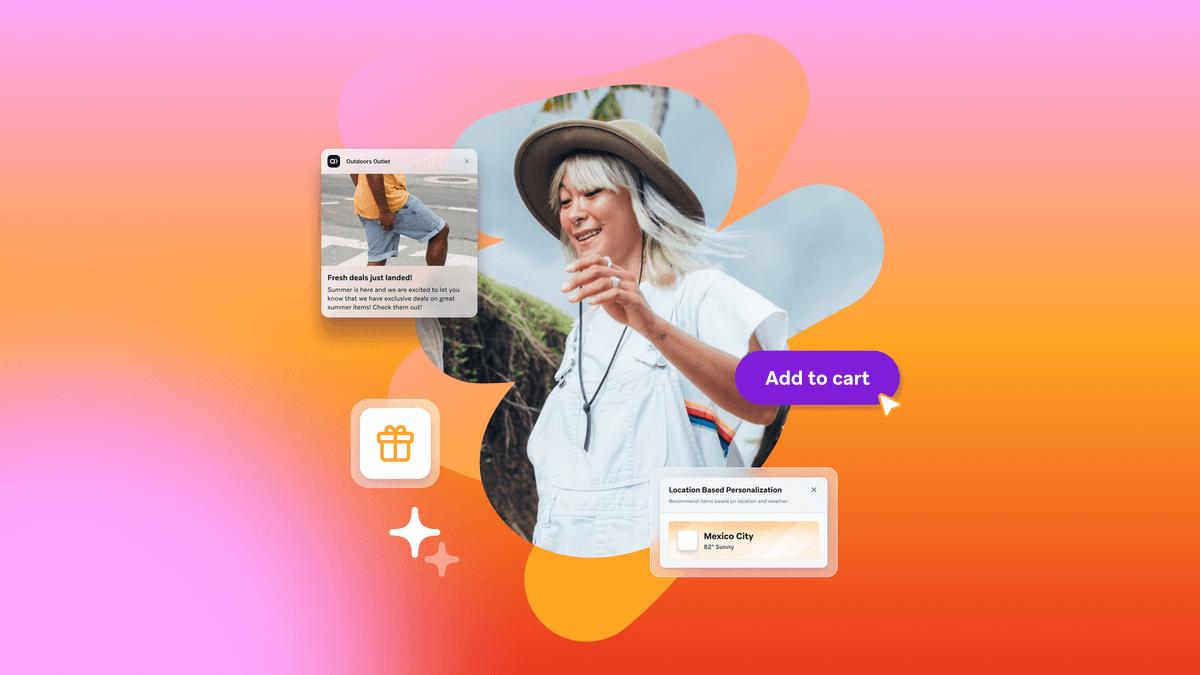Understanding Dynamic Content Personalization
Published on November 03, 2020/Last edited on November 03, 2020/3 min read


Adam Swiderski
WriterAt this point in the evolution of marketing, the importance of personalization should come as no shock to anyone. However, that familiarity has actually raised the stakes for marketers—today’s consumers are used to tactics like seeing their name in the subject line of an email, and brands that don’t push the envelope in terms of providing dynamic, comprehensive personalization risk providing experiences that feel more like a robocall than a human interaction.
Fortunately, there’s a tactic that helps deliver relevant, up-to-the-minute personalization in promotional messaging. It’s called dynamic content personalization, and it allows brands to deliver a responsive experience that can differ dramatically from customer to customer based on where they are in their journey and their specific interests and preferences. On the Braze platform, this feature is called Connected Content, and it makes it a snap to inject tailored, on-demand content into any message.
How Dynamic Content Personalization Works
Personalization as a practice is all about delivering unique messaging that speaks to a particular customer’s place in their journey with a brand. Elements like custom text and imagery play a part, but dynamic content personalization takes things further by allowing marketers to pull information from various sources into messaging sent via Braze and other, similar platforms in real time. This content can be sourced internally from, say, a point-of-sale system, or externally with information sourced from public APIs.
The possible applications are wide and varied. Pull from third-party recommendation engines to offer purchase suggestions based on customer behavior. Incorporate real-time weather information. Draw on news from major media outlets, up-to-date financial data featuring the latest stock market fluctuations, or current scheduling information for a consumer’s favorite sports team.
Since it all happens right at the point of message send, you never have to worry about your content being out of date. Plus, because Connected Content can be executed with the inclusion of a few simple lines of the Liquid open-source templating language, there’s no need to involve the IT department to make it all happen.
What Dynamic Content Personalization Can Do
Language learning app busuu was interested in creating motivational messaging to encourage users to stick with their study programs, but realized that one-size-fits-all messaging wouldn’t work, even when it leveraged on user behavior. (After all, no one wants a “Here’s how much time you’ve spent learning!” message with a big, fat zero in it.)

Instead, busuu used customer behavior to segment their audience, and then used Connected Content to insert different messaging depending on the level of activity, leaning more into gentle motivation for consumers they were attempting to re-engage. As a result, they saw a 93% increase in open rates for weekly progress emails, as well as a 19% increase in open rate for emails to lapsed users.
Final Thoughts
While busuu’s campaign had a major impact, it’s just one of an almost endless number of ways that marketers can leverage dynamic personalization to support smarter, more relevant customer messaging in real time.
For more on how this and other forms of personalization can be put to work for you, check out the Braze Personalization Guide and learn how to mold messaging into its most effective form.
Related Tags
Be Absolutely Engaging.™
Sign up for regular updates from Braze.
Related Content
View the Blog
The future of payments: Enhancing innovation and trust in a changing landscape

Erin Bankaitis

Multichannel optimization: Unlocking a more cohesive strategy for engaging customers

Team Braze

Customer engagement must-haves for peak shopping season
